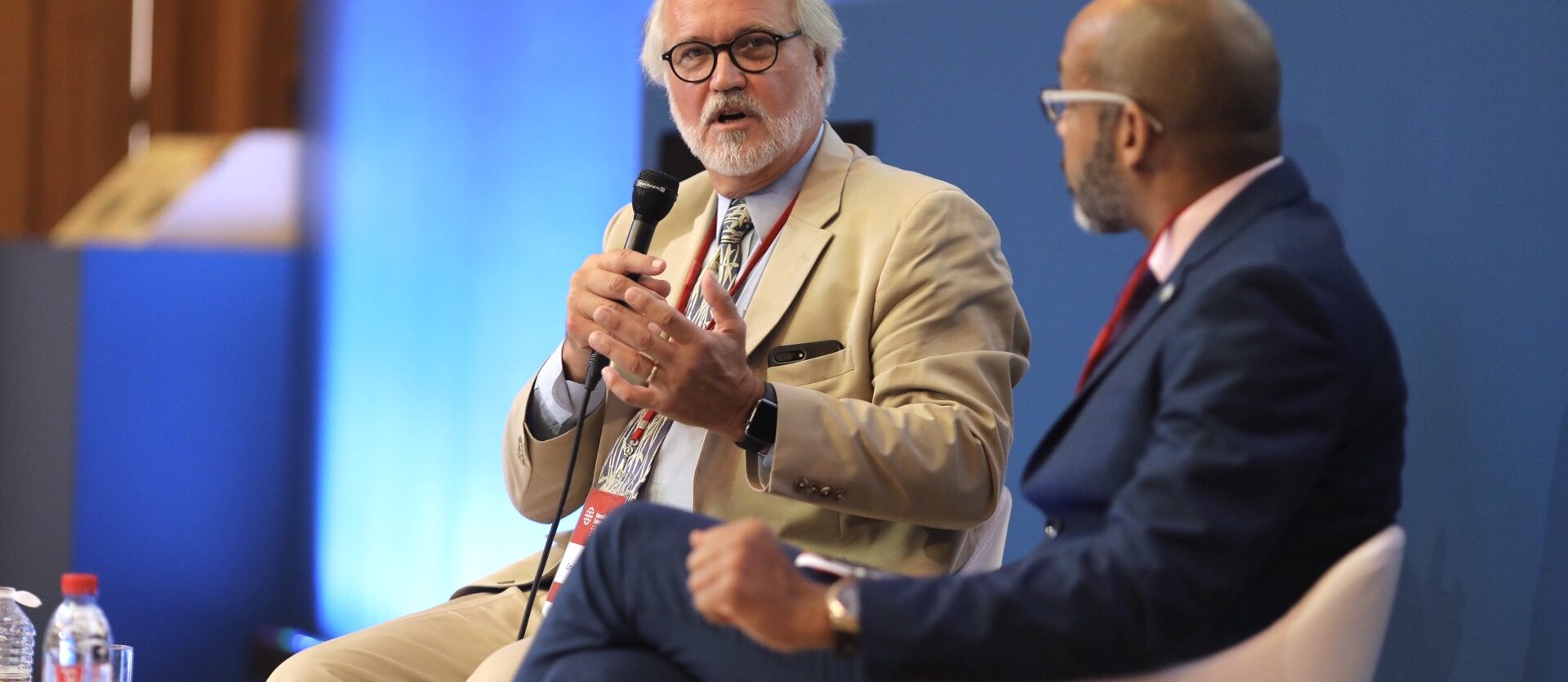
The creation of the International Science Council and its mission to be a global voice for science are of enormous importance. Yet as we celebrate the new organization, we must also recognize that it faces challenges. Indeed, science itself and even knowledge, face challenges in the contemporary world.
As members of the scientific community, we stand for research-based knowledge, and for publishing our research so that it can be debated, critiqued and challenged. When we speak of the scientific method, we speak of the combination of logic, evidence and communication; of reasoning, gathering facts, and making our findings available for critical evaluation and improvement. This is part of the basic idea of science, underpinned by a commitment to humility and to doubt that allows us to continually question how to achieve better knowledge.
Today, these principles are accompanied by extraordinary capacities to create knowledge, with facilities such as CERN, born out of the collaboration of governments and scientists from around the world. The enormous expansion of knowledge institutions that enable science to advance is to be celebrated. We see a diversification of resources and of settings, with scientists moving back and forth between universities and corporate research, posing new questions about how proprietorial interests may affect scientific practice and publishing.
We also celebrate the use of knowledge. Science is not just the accumulation of research findings, nor even the continued questioning of those findings, it is also part of a larger social ecology in which scientific knowledge is used to make and remake the world and its inhabitants. In the contemporary world, scientific advances such as gene-editing are changing our understanding of ourselves and even our physical beings.
We celebrate the unity of science, including physical, natural, and social sciences; and including basic and applied science. The merger of ICSU and ISSC is, in part, an achievement based on this idea. Yet we must not become complacent. We have demonstrated the unity of science, the coherence of a scientific vision and the importance of a global voice for science for ourselves, but that does not mean that we have demonstrated these goods in the world at large.
We live in a troubled world, in which the very idea of truth and knowledge is questioned in many settings. We live in a world that needs a more coherent global voice for science, but we need to ask ourselves who is listening and how to start a conversation.
Only by working together can we face up to a mistrust of experts. We have to admit that we have sometimes let our knowledge be coupled uncritically to projects that have deepened divides. We need to collaborate across institutions, national boundaries, and prestige hierarchies to counteract suspicion of science and fears that science is elitist. Without working to deepen understanding of both the public and policy-makers we risk inadequate policies and regulations. Finally, we need to recognize the challenge of inadequate public investment in science and in education.
Science is vulnerable in the era of fake news. Good data can be manipulated, and both misstatements and deliberate deceptions circulate widely. We have to be aware that the truth does not always automatically win out. Debates over climate change are an example of how persistent disinformation has distorted our understanding. To counteract the pattern of collapsing trust, we should not simply seek more trust, but trust in trustworthy sources. Finally, we need to recognize that science is not automatically all good, and its uses can be pernicious. What’s more, the benefits of science are extremely unequally distributed, both between and within countries.
The way to confront these challenges is to strengthen scientific collaboration. We need to work together to address the many forms of inequality that affect scientific practice, including the huge disparity in the number of researchers in the global north and south, and in opportunities to access science. Despite our global institutions, we live in an era of renewed nationalism, posing challenges to international scientific collaboration and mobility. In an era of disruption, we need to collaborate across geographic and other divides to understand the changing world around us.
Craig Calhoun, Professor of Social Sciences, Arizona State University
Watch the speech online:
Click here to read the ISC’s Annual Report 2018